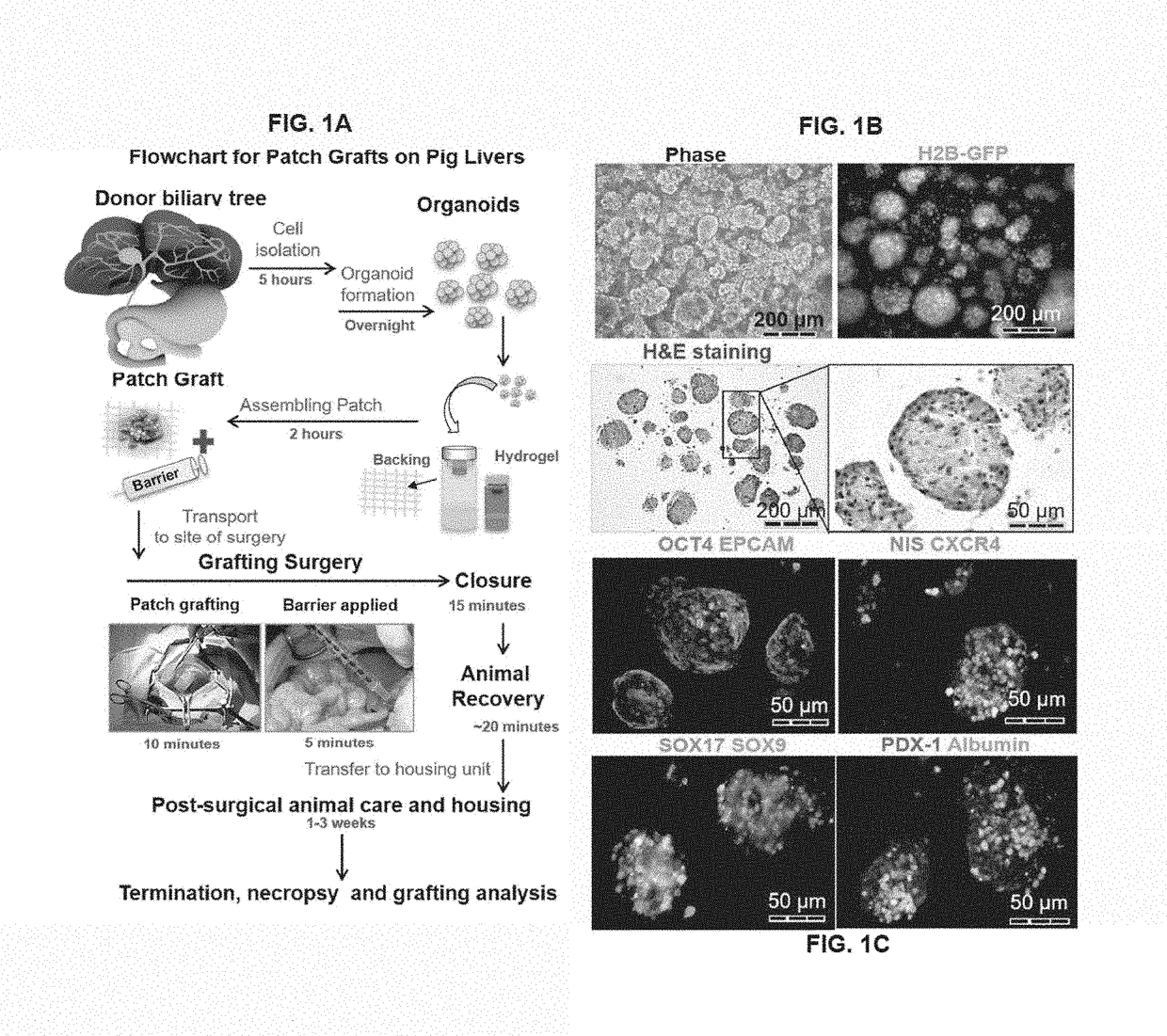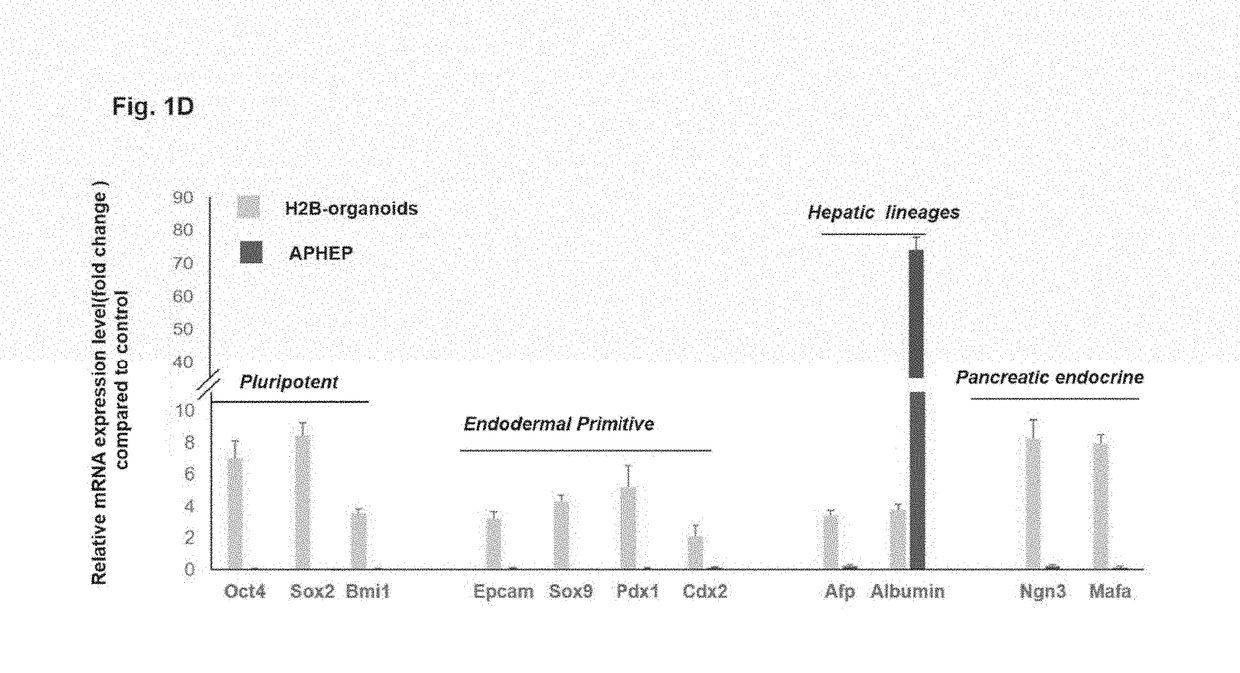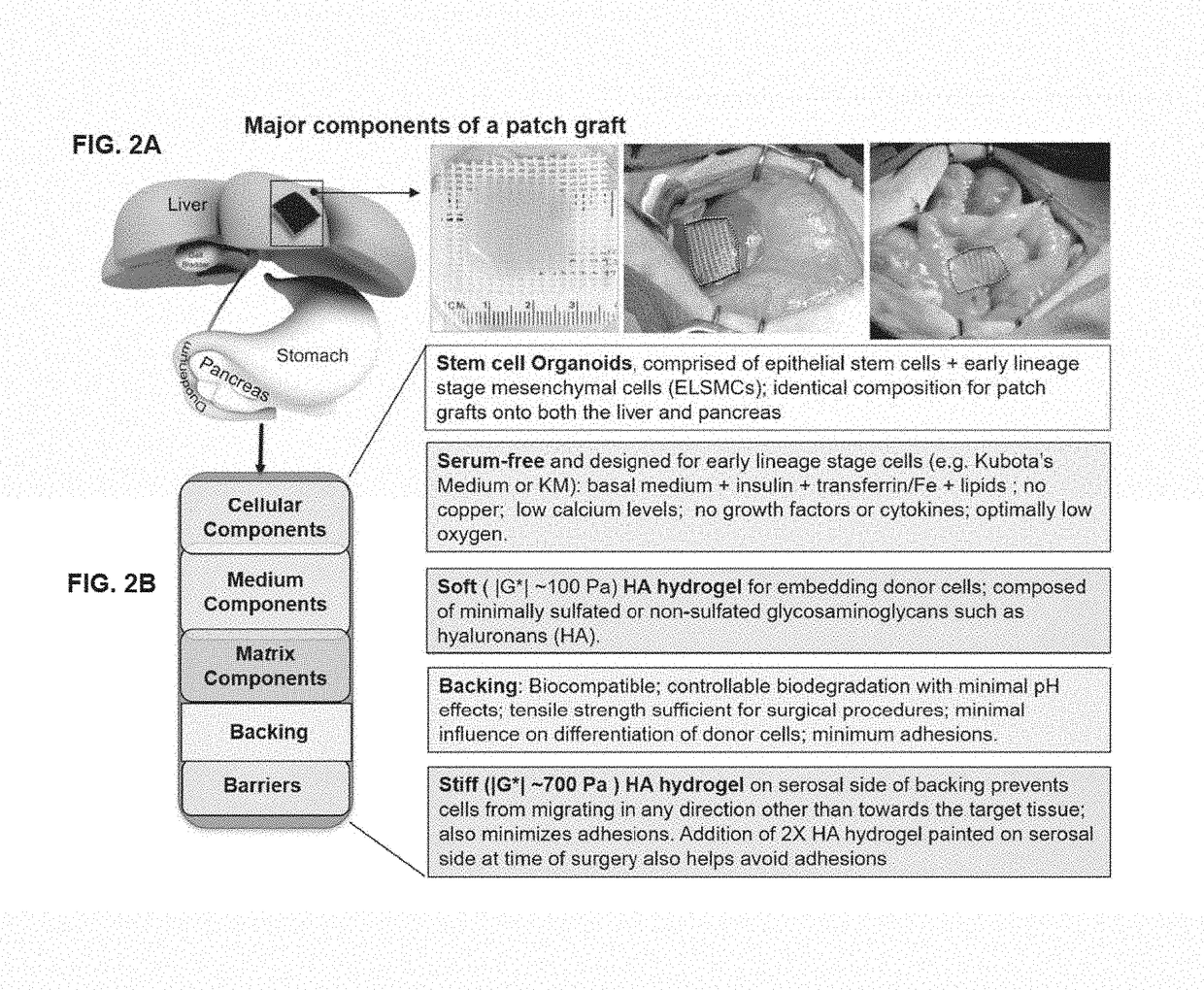Patch graft compositions for cell engraftment
a cell engraftment and composition technology, applied in the field of tissue engrafting or cell transplantation, can solve the problems of low cell engraftment efficiency, rapid (life-threatening emboli), and low efficiency of cell engraftment, and achieve the effect of preventing cell migration
- Summary
- Abstract
- Description
- Claims
- Application Information
AI Technical Summary
Benefits of technology
Problems solved by technology
Method used
Image
Examples
example 1
odel for Patch Graft Validation
[0241]Animals
[0242]Animals used as hosts or as donors for cells were maintained in facilities at the College of Veterinary Medicine at NCSU (Raleigh, N.C.). Surgeries, necropsies, and the collection of all biological fluids and tissues were performed at these facilities. All procedures were approved by the IACUC committee at NCSU. The pigs being used as recipients were a mixture of six different breeds: a six-way cross consisting of Yorkshires, Large Whites, Landraces (from the sows), Durocs, Spots, and Pietrans (from the boars). This highly heterogeneous genetic background is desirable in that it parallels the heterogeneous genetic constitutions of human populations. The host animals were all females, approximately six weeks of age and ˜15 kg.
[0243]There were two categories. a) male pigs, approximately six weeks of age and ˜15 kg, were used as donors for cell transplantation into females; b) transgenic donor animals carrying a GFP transgene. The GFP+ ...
example 2
[0300]This example describes an exemplary method of treating a subject having a liver disease or disorder using a patch graft. Donor cells are prepared as organoids of biliary tree stem cells (BTSCs), precursors to liver and to pancreas, aggregated with early lineage stage mesenchymal cells (ELSMCs) consisting of angioblasts and their early lineage stage descendants, precursors to endothelia and precursors to stellate cells as described herein. The BTSC / ELSMCs organoids are embedded into soft hyaluronan hydrogels (<200 Pa) placed onto a backing that is tethered to a target site of the subject's liver.
[0301]Following administration of the patch graft, the subject is monitored for improvement in liver function. Commonly used tests to check liver function include but are not limited to the alanine transaminase (ALT), aspartate aminotransferase (AST), alkaline phosphatase (ALP), albumin, and bilirubin tests. The ALT and AST tests measure enzymes that are released by the ...
example 3
[0302]This example describes an exemplary method of treating a subject having a disease or disorder of the pancreas using a patch graft. Donor cells are prepared as organoids of biliary tree stem cells (BTSCs), aggregated with early lineage stage mesenchymal cells (ELSMCs) consisting of angioblasts and their early lineage stage descendants, precursors to endothelia and precursors to stellate cells as described herein. The BTSC / ELSMCs organoids are embedded into soft hyaluronan hydrogels (<200 Pa) placed onto a backing that is tethered to a target site of the subject's pancreas.
[0303]Following administration of the patch graft, the subject is monitored for improvement in pancreatic function. Commonly used tests to check pancreatic function include but are not limited to blood tests for levels of the pancreatic enzymes amylase and lipase, the direct pancreatic function test following administration of secretin or cholecystokinin, fecal elastase test, CT scan with ...
PUM
| Property | Measurement | Unit |
|---|---|---|
| distance | aaaaa | aaaaa |
| tensile strength | aaaaa | aaaaa |
| tensile strength | aaaaa | aaaaa |
Abstract
Description
Claims
Application Information
 Login to View More
Login to View More - R&D
- Intellectual Property
- Life Sciences
- Materials
- Tech Scout
- Unparalleled Data Quality
- Higher Quality Content
- 60% Fewer Hallucinations
Browse by: Latest US Patents, China's latest patents, Technical Efficacy Thesaurus, Application Domain, Technology Topic, Popular Technical Reports.
© 2025 PatSnap. All rights reserved.Legal|Privacy policy|Modern Slavery Act Transparency Statement|Sitemap|About US| Contact US: help@patsnap.com



